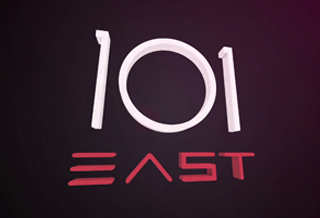
Locked Up Warriors
Why does New Zealand have one of the highest rates of incarceration in the developed world?
New Zealand ranks as one of the world’s most peaceful countries in the Global Peace Index every year. Yet despite a strong reputation for social justice and equality, the South Pacific nation has the second highest rate of imprisonment rates in the western world.
In the past two decades, the jail population has doubled. One international study examining law and order across western nations attributes it to a “tough on crime” approach by New Zealand’s political parties since the 1980’s, even though crime rates are low.
Today each prisoner costs on average $94,000 to lock up and the current government has described New Zealand’s prison problem as a moral and fiscal failure.
Making sure the punishment fits the crime is a widely debated subject in New Zealand but what is undeniable is the gross overrepresentation of minorities in jails.
One in two prisoners is indigenous Maori even though they only account for just 15 percent of the population. Maori are overrepresented in all sectors of the criminal justice system due to soaring rates of child poverty, school dropout, unemployment and family breakdown within indigenous communities.
Many say going to prison has become normalised in Maori society because every child has a relative who is locked up. They also claim that government agencies are failing the children of Maori prisoners, leaving them vulnerable to becoming a new generation of offenders.
Gang affiliations also play their part, providing surrogate families to disenfranchised youth. Since the 1960’s, young Maori have joined the ranks of patched gangs like the Mongrel Mob and Black Power who were modelled on US bikie gangs like the Hells Angels.
Over the decades the gangs have been involved in violent crime, drug trafficking and brutal gang rapes. Both the Mongrel Mob and Black Power retain a strong presence across the country but many Maori youth are also forming their own smaller American-style street gangs.
Recently, the New Zealand prison system has introduced cultural units and innovative programmes that try to connect Maori with their families instead of the gangs and to encourage prisoners to get back in touch with their cultural ancestry by learning traditions like the Haka, a famous warrior dance.
But only half of the men in these units speak with their family and reestablishing that bond is not an easy task.
Maori leaders who have seen these programmes at work say they have little effect unless they connect inmates with community projects on the outside.
New Zealand’s indigenous population is also overrepresented in reoffending rates. With half of the prisoners returning to jail within two years of their release, the government has introduced more education and addiction programmes in jail.
101 East gains rare access inside New Zealand’s prisons and criminal underworld to investigate the cost of the country’s harsh criminal justice system. Why does this peaceful South Pacific nation have one of the highest rates of incarceration in the western world?
What can be done to stop the high rates of Maori incarceration in New Zealand? @AJ101East #Lockedupwarriors
|
